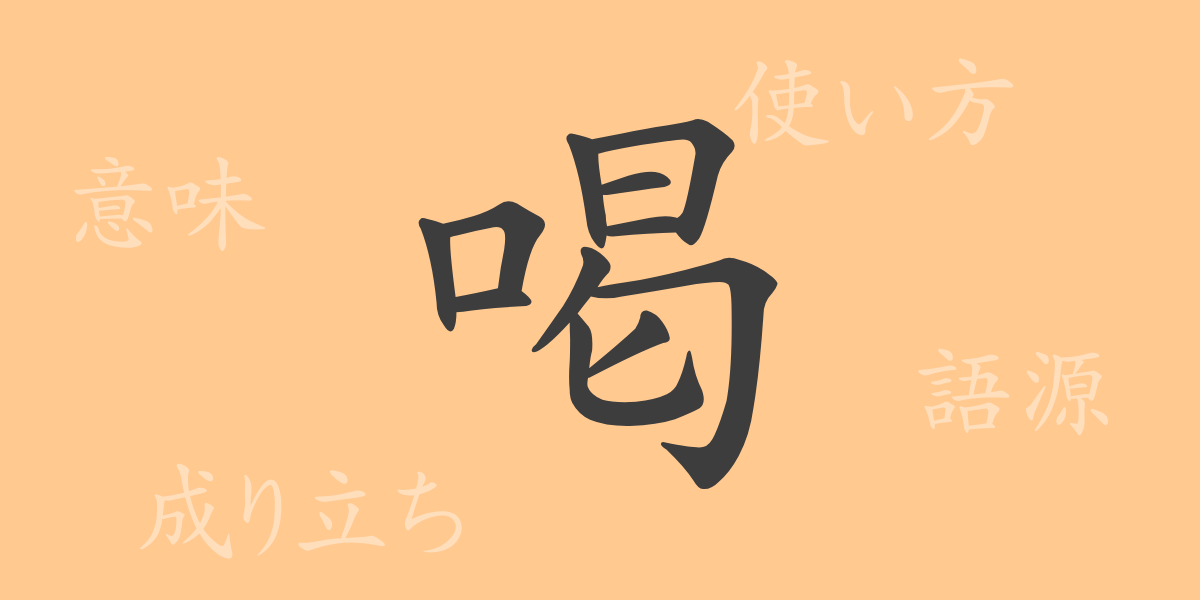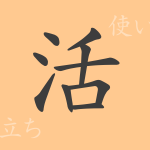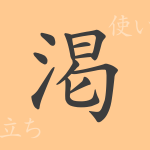Japanese culture is replete with unique expressions and characters, among which the Kanji ‘喝’ (Katu) stands out as particularly intriguing. This character possesses the power to strongly influence people’s behavior and minds. In this article, we will explore the allure of ‘喝’ (Katu), from its origins and meaning to its usage, and even its appearance in idioms and set phrases.
The Origin (Etymology) of 喝 (Katu)
The Kanji ‘喝’ (Katu) traces back to ancient China. Originally a pictograph representing the act of shouting with an open mouth, it evolved to mean scolding or admonishing someone in a loud voice. This character with a strong connotation made its way to Japan, where it became intertwined with the unique cultural background and started being used in various contexts.
The Meaning and Usage of 喝 (Katu)
The Kanji ‘喝’ (Katu) conveys meanings such as “to scold loudly” or “to shout with vigor.” It is particularly known in Zen Buddhism for the scolding or encouragement given to monks during their training, using ‘喝’ (Katu) as a powerful message that stirs the spirit. In everyday conversation, it is used to prompt attention or to add momentum.
Reading, Stroke Count, and Radical of 喝 (Katu)
Let’s take a closer look at the reading, stroke count, and radical of the Kanji ‘喝’ (Katu).
- Reading: Onyomi (Sino-Japanese reading) is ‘かつ’ (Katu), there is no Kunyomi (native Japanese reading)
- Stroke Count: A total of 11 strokes
- Radical: Mouth radical (Kutihenn)
Idioms, Set Phrases, and Proverbs Using 喝 (Katu) and Their Meanings
There are several idioms, set phrases, and proverbs that include ‘喝’ (Katu), such as:
- 喝采 (Kassai): Enthusiastic applause or cheers from a large crowd.
- 一喝 (Ikkatu): A stern scolding or a powerful word that strikes someone’s heart.
- 気勢を喝する (Kisei-wo-kas-suru): To vigorously boost one’s spirit or momentum.
These idioms and set phrases reflect the strong meaning of ‘喝’ (Katu) and demonstrate the richness of Japanese expressions.
Conclusion on 喝 (Katu)
The Kanji ‘喝’ (Katu), with its intense image and historical background, occupies a unique place in the Japanese language. It is often used in contexts of reprimand and encouragement, holding the power to move people’s hearts. Through idioms and set phrases like 喝采 (Kassai) and 一喝 (Ikkatu), it is utilized in various scenes of daily life. In this way, ‘喝’ (Katu), with its multifaceted uses, embodies the profound expressive capability of the Japanese language.

























